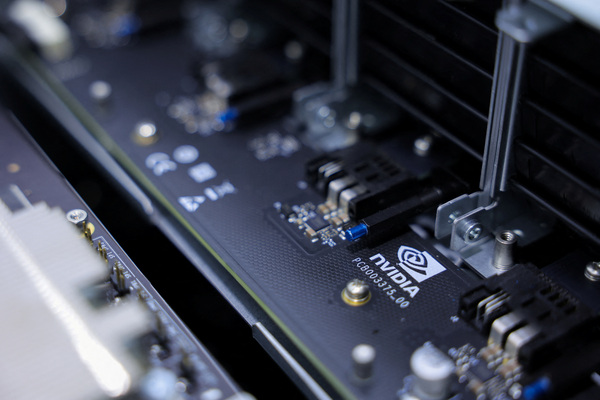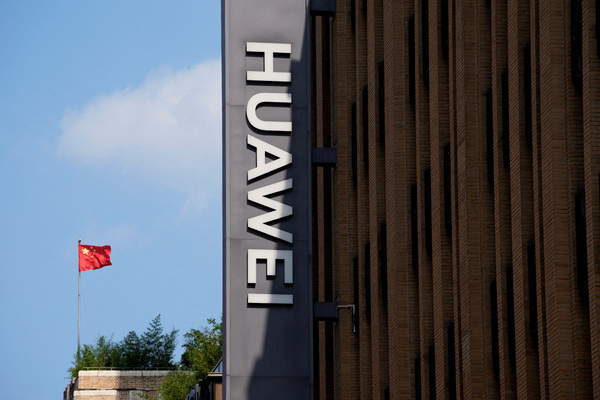Driving innovation in Human Resource management

Charlie Knox and David Deacon at activpayroll explore some of the trends in HR’s use of technology that are transforming the discipline
HR has a long tradition of embracing technology, and some of the biggest productivity and efficiency gains of the past decades have been as a result of introducing ever-improving time-and-attendance and HRIS solutions.
More recently, tech innovations in training, education, talent acquisition and talent management have transformed the way that these activities are executed and reported.
What’s more, the recent focus on the employee experience has seen the embrace of multiple new platforms and products, often app-based and employee-centric. This openness to new technologies means that staying ahead of the curve in human resources is essential for organisations to attract, retain, and nurture talent.
The forefront of human resource innovation is marked by groundbreaking strategies and transformative ideas that redefine traditional HR management models.
The continued relevance of technology
HR has evolved from traditional resource management to a strategic function that plays a pivotal role in driving organisational success. As a profession, we are still seeing significant shifts in everything, from transformative strategies and enhanced data-driven decision-making to the emphasis on curating improved employee experiences and further simplifying and streamlining processes. In all these changes, technology remains a key consideration and a clear enabler.
Prioritising the employee experience is a great example of how a new workforce demand can only be satisfied through a combined approach, leveraging technology, processes, training, career development and culture building to maximise the profound impact on engagement, retention and productivity. This requires a more integrated approach to leverage HR’s role in shaping culture and driving sustainable growth in the modern business landscape, alongside thoughtful selection and implementation of technology-based tools and solutions.
Streamlining operations
It’s no secret that embracing revolutionary technologies is crucial for modern HR departments looking to optimise their operations and deliver greater value to their organisations. Automating repetitive tasks like onboarding, offboarding, and payroll processing has been a game changer for HR. By leveraging automation, businesses can significantly improve operational efficiency, reduce errors and free up resources to focus on longer-term, strategic initiatives.
The pace of digital innovation is creating new and attractive opportunities for businesses to embrace technologies to streamline and enhance efficiency across various functions.
One significant advancement is the adoption of digital HR platforms, where organisations are transitioning to cloud-based systems for their HR operations. These platforms offer a flexible and accessible centralised solution for managing tasks such as payroll, benefits administration, and employee self-service, facilitating seamless collaboration and great employee experience across departments and locations.
Businesses are also turning to technology to help streamline their processes and ensure adaptability for employee needs, no matter where or when they are working. Artificial intelligence (AI) and machine learning (ML) technologies can play a role in this, with predictive analytics, performance management systems and AI-driven insights utilised to inform the most effective business decisions.
Furthermore, these technologies can be used to leverage data-driven decision-making in HR strategies, with organisations gaining further actionable insight into workforce dynamics, trends and performance metrics. This enables HR professionals to make informed decisions, optimise resource allocation, and drive strategic initiatives aimed at enhancing overall workforce productivity.
A modernised hybrid model
Over 40% of companies have shifted to a hybrid working model since the pandemic, making the need for a flexible HR management system even more essential to meet the demands of asynchronous working schedules and locations.
The rise of remote and hybrid working models has also led to a re-evaluation of policies and practices. HR departments are now tasked with adapting to these new arrangements, ensuring seamless collaboration, employee engagement and the maintenance of organisational culture in a distributed work environment. This shift highlights the importance of agility and flexibility, as organisations navigate changing work dynamics and employee expectations.
Technology and platforms can be a real enabler in this case, whether through using collaboration software, time and attendance programmes that adapt to remote working, flexible benefits platforms, social media-like communication tools, and manager and employee online communities to help keep everyone involved and engaged regardless of where they are working.
Enhancing development and engagement
Employee development and engagement are central to fostering a thriving and motivated workforce. Organisations are beginning to recognise the importance of continuous learning and upskilling initiatives, to nurture employee growth and development in alignment with business goals.
By fostering a culture of continuous learning, employees are empowered to acquire new skills and knowledge, driving innovation and adaptability within the business.
Personalised employee experiences play a critical role in engaging and retaining talent. Leveraging HR technology enables businesses to deliver tailored learning experiences, career development plans and rewards that cater to individual employee preferences and aspirations, enhancing engagement and satisfaction in the long term.
Prioritising employee well-being and mental health support is essential for creating a supportive work environment where employees feel valued and motivated to perform at their best.
By offering resources, programs and support for mental health and work-life balance, businesses demonstrate their commitment to the holistic well-being of their employees, fostering a positive and productive workplace culture.
Future trends and challenges
Emerging trends in HR innovation point towards a future reliance on technologies, including AI and machine learning, to evolve best practices and drive strategic decision-making. However choosing the right technology for your business’s HR needs can be challenging, with an overwhelming number of solutions available in the market.
Collaborating with a knowledgeable partner will ensure businesses navigate the complex landscape effectively and adapt to an increasingly dynamic and competitive business environment. These partners can help align HR technology with the business’ specific requirements in line with the evolving workforce demographics that require diverse employee needs and preferences to be taken into account.
Alongside these opportunities, businesses will face challenges in implementing innovative HR strategies. A dedicated HR partner will help address concerns related to data privacy, cyber-security and compliance with evolving regulations, ensuring the business maintains trust and integrity in its operations.
It’s this combination of HR leadership with high-impact technology that drives change in organisations and leads to improved colleague engagement that will ultimately help deliver improved customer satisfaction enabling business growth; one without the other will just not be as powerful.
For businesses to stay ahead of the curve and successfully navigate the dynamic landscape, they need to pay attention to their people strategy, as well as the groundbreaking tech agenda.
Charlie Knox is Chief Technology Officer and David Deacon is Chief People Officer at activpayroll
Main image courtesy of iStockPhoto.com and portishead1

Business Reporter Team
Most Viewed
Winston House, 3rd Floor, Units 306-309, 2-4 Dollis Park, London, N3 1HF
23-29 Hendon Lane, London, N3 1RT
020 8349 4363
© 2024, Lyonsdown Limited. Business Reporter® is a registered trademark of Lyonsdown Ltd. VAT registration number: 830519543





